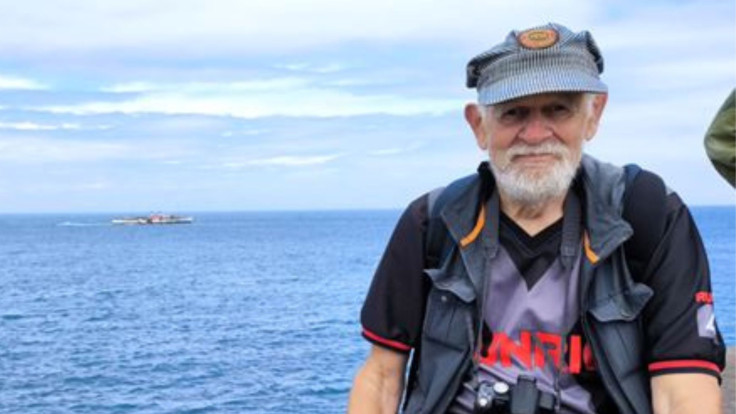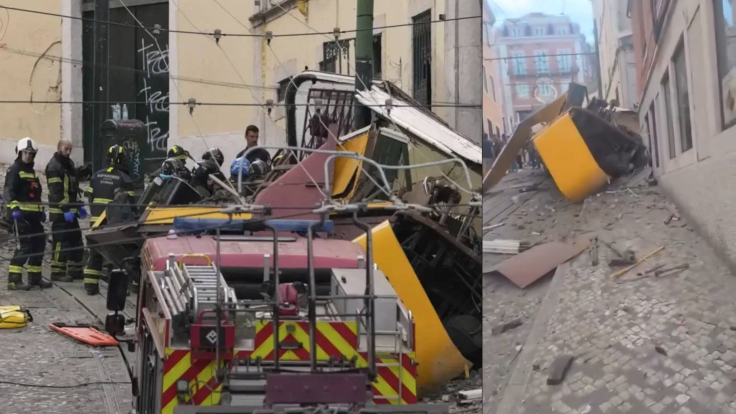Third British Victim Named in Lisbon Funicular Horror: Retired Customs Officer Dave Young, 82, Died Pursuing His Love of Railways
A total of 16 individuals confirmed dead and 22 injured.

Andrew David Kenneth Young, 82, a retired customs officer from Holyhead and lifelong transport enthusiast, was among the 16 people killed when Lisbon's historic Glória funicular derailed on 3 September.
Known to friends and family as Dave, he died while pursuing his passion for heritage railways and tramways, a hobby his loved ones said had brought him joy throughout his life.
Family Tribute
North Wales Police confirmed on Monday that Mr Young's family had been informed.
In a statement, his relatives said: 'Andrew David Kenneth Young was known to most as Dave. He was raised in Auchterarder, Perthshire. He moved to Holyhead in 1980 where he had a long career as a customs officer. A lifelong transport enthusiast, in retirement he enjoyed visiting heritage railways and tramways around the world. It is a comfort to his sons, their mother, and his brothers that his final moments were in pursuit of the hobby which gave him so much happiness.'
Specialist officers are supporting the family, who have asked for privacy during this difficult time.
Other British Victims
Cheshire Police had earlier identified the other British victims as Kayleigh Smith, 36, from Cheshire, and her partner Will Nelson, 44, from Manchester.
Both worked in the theatre industry. Smith's family described her as 'loved by family and friends for her wit and humour,' while Nelson's brother said he was 'kind, selfless, and protective.'
Prime Minister Sir Keir Starmer said he was 'deeply saddened' by the loss of British lives and extended condolences to all those affected. 'We stand united with Portugal during this difficult time,' a Downing Street spokesperson added.

A Global Tragedy
The crash also claimed the life of Heather Hall, an American college instructor from South Carolina, as well as passengers from Portugal, South Korea, Switzerland, Canada, France, and Ukraine. Dozens more were injured.
Hall, a Fulbright Scholar and mother of two, taught at the College of Charleston. Her colleagues described her as 'kind, dedicated, and deeply missed.' Senator Tim Scott paid tribute, calling her loss 'heartbreaking.'
Among the Portuguese dead was brakeman Andre Jorge Gonçalves Marques, who tried to slow the runaway tram but was unable to prevent the crash. Carris, the operator, described him as 'courageous and professional.'
How the Crash Happened
Investigators from Portugal's Office for Air and Rail Accident Investigations said the funicular had only moved a few metres when its cable snapped at the attachment point.
The brakeman tried both manual and pneumatic brakes, but neither could stop the carriage, which accelerated downhill and hit speeds of up to 60 km/h before impact.
Authorities have suspended all Lisbon funiculars — Glória, Lavra, Bica, and Graça — for safety checks. Officials confirmed that maintenance had been conducted regularly, with spending on repairs doubling over the past decade.
A City in Mourning
First opened in 1885, the Glória funicular is one of Lisbon's most recognisable tourist attractions, carrying millions of passengers each year between the city centre and Bairro Alto.
Portuguese Prime Minister Luís Montenegro called the accident 'one of the biggest tragedies in our recent history.' Memorials have sprung up near the crash site as families and visitors pay tribute to the victims.
While investigators stress it is too early to confirm the exact cause, their findings so far point to catastrophic cable failure. A final report will determine whether mechanical faults, oversight, or other factors contributed to the deadly derailment.
© Copyright IBTimes 2025. All rights reserved.




















